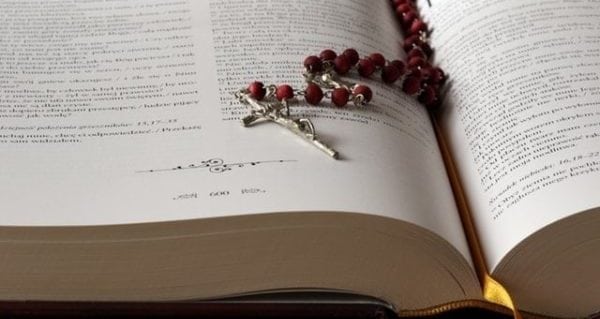 When I was a younger man, back when Lester Pearson was prime minister and Pluto was still a planet, I attended the University of Saskatchewan. It had a very simple coat of arms: three wheat sheaves and an open book whose pages displayed the motto “Deo et Patriae” – “For God and Country.”
When I was a younger man, back when Lester Pearson was prime minister and Pluto was still a planet, I attended the University of Saskatchewan. It had a very simple coat of arms: three wheat sheaves and an open book whose pages displayed the motto “Deo et Patriae” – “For God and Country.”
Years later, I taught history at the University of Regina, which had an equally noble motto: “As One Who Serves,” words Jesus Christ used to describe himself in the Book of Luke. Still later, I taught at the University of Manitoba, whose arms were jam-packed with religious imagery: St John the Evangelist and his eagle, St George’s cross, and a book with a quote from the Old Testament: “To these children God gave knowledge.”
The universities of Western Canada abound in coats of arms with Christian messages. The University of Alberta’s motto is “Quaecumque Vera,” referencing St Paul’s advice to the church at Philippi: “Whatsoever things are true. …” Calgary’s crest bears the message, in Gaelic, “I will lift up mine eyes,” which any fan of the Book of Psalms could continue “unto the hills, from whence cometh my help. My help cometh from the Lord, which made heaven and earth.” God’s first words in the Bible, “Let there be light,” are the motto, in Hebrew, of the University of Victoria.
Readers may be surprised to learn of this flourish of Christianity in the halls of higher education, but that’s because today’s universities usually present only watered-down versions of their crest, denuded of Latin (too elitist) and of religion (too exclusive). The U of A’s website, for example, shows only a shield and a stylized landscape. UVic presents three birds above an empty book, while Manitoba’s largest university gives us a buffalo, a crown, a maple leaf and another book – empty, of course. Under the shield, where a motto should be, is a banner with the inspiring phrase: “Est. 1877.” Truly, words to live by.
All of this is the result of deliberate policy to strip religion from the public square in the name of diversity. We can see this most clearly in the University of Alberta’s retreat. Before 1999, graduates receiving their diplomas were told to use their degrees “for the glory of God and the honour of their country.” Even as late as 2009, the university admitted students to their degree with the charge “for all who believe to serve your God.” The latest version tells students to “serve our community for the public good.”
These changes came at the behest of chancellor Doug Stollery, a corporate lawyer, who wished to spare the feelings of those in the audience who profess no religion. He also removed the notion of conveying a blessing on students and the university in his opening remarks. When a student on the general faculty council noted that this would make a statement that as an institution the university was not comfortable acknowledging faith, Stollery was unmoved. He said that one could, after all, join a religious group on campus or attend a class on religion. What was important was “inclusivity” – and apparently one achieves this goal by excluding any reference to faith or a deity.
Stollery’s views are not unique. All across the country, old values such as God, honour, tradition or patriotism are being excised from public ceremony or symbology as being aggressive or divisive. A nation with no common values, except that the determination that we will have no common values, cannot long survive.
Gerry Bowler is a Manitoba historian and a senior fellow at the Frontier Centre for Public Policy.
The views, opinions and positions expressed by columnists and contributors are the author’s alone. They do not inherently or expressly reflect the views, opinions and/or positions of our publication.
This site is Powered by Troy Media Digital Solutions

